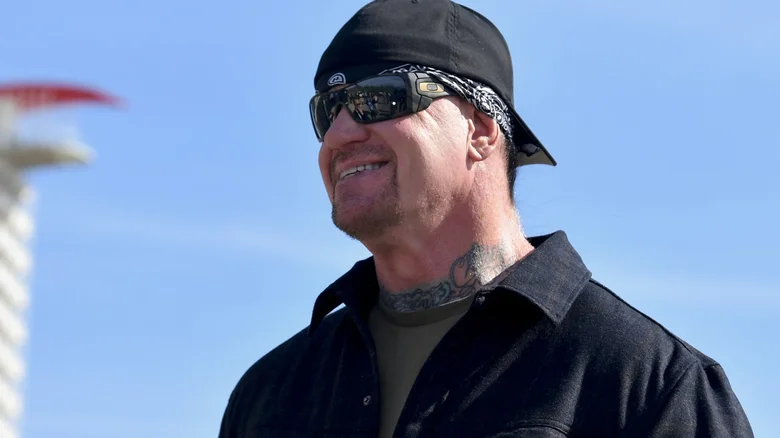WWE legend The Undertaker, real name Mark Calaway, recently addressed his controversial comments from a 2021 interview on The Joe Rogan Experience, where he described the current wrestling product as “a little soft.” These remarks, which contrasted modern wrestling with the gritty nature of earlier eras, sparked debate across the wrestling community. Now, revisiting the topic, Calaway has clarified his perspective and defended his statements, acknowledging the evolution of the industry while reflecting on the changes he has witnessed throughout his career.
Revisiting the Controversy
In his original interview, The Undertaker discussed how the wrestling world had shifted significantly since his debut in the late 1980s. He expressed a sense of nostalgia for the ruggedness of past locker rooms, describing how wrestlers carried themselves differently and even noting cultural shifts, such as the rise of video games as a pastime among current performers. “The product is a little soft,” he said, suggesting that the intensity of storytelling and character development had changed over time.
These remarks drew mixed reactions. Some veteran wrestlers, such as Goldberg, supported his observations, agreeing that the business had softened in some respects. Others, like Roman Reigns, disagreed, emphasizing that today’s wrestlers face unique challenges, including more physically demanding performances and higher creative expectations from audiences. Reigns argued that these changes reflect the natural evolution of professional wrestling, where innovation is necessary to keep fans engaged.
Calaway’s Updated Perspective
In his recent appearance on his podcast, Six Feet Under with Mark Calaway, The Undertaker revisited the topic, providing more context to his earlier comments. While he stood by his observations about how the industry has evolved, he highlighted the improvements made for wrestler safety, training, and professionalism. He praised modern wrestlers for being more prepared and supported, likening them to professional athletes who now benefit from advancements in sports science and healthcare.
Calaway acknowledged that his initial remarks may have come across as overly critical, but he explained they were born from his deep respect for the craft and the pride he takes in his legacy. He expressed gratitude for having been part of an era that helped shape today’s industry and recognized the importance of these advancements in ensuring the longevity of performers.
Industry Reactions
The Undertaker’s remarks reignited conversations about the evolution of wrestling. Critics of modern wrestling often argue that the focus on athleticism and spectacle has overshadowed the storytelling and character development that defined earlier eras. Meanwhile, supporters of today’s product see these changes as a necessary progression that has made the industry more inclusive, diverse, and entertaining for a wider audience.
Triple H, WWE’s Chief Content Officer, previously came to The Undertaker’s defense, emphasizing that his comments were constructive and reflected his passion for wrestling. Roman Reigns, while standing by his disagreement with the “soft” label, acknowledged that Calaway likely didn’t intend to disparage the current generation of wrestlers. Reigns also noted that modern performers, like those in other industries, have adapted their approaches to fit a different cultural and professional landscape.
A Legacy of Adaptation
The Undertaker’s reflections underline the balance between tradition and innovation in professional wrestling. His critiques reflect a reverence for the sport’s history, but his willingness to recognize and embrace change speaks to his understanding of wrestling as a dynamic, evolving art form.
For over three decades, The Undertaker stood as a symbol of resilience and adaptability, and his reflections on the industry’s growth highlight the legacy of his career. By revisiting and clarifying his remarks, Calaway reaffirmed his respect for the business and the new generation of wrestlers who continue to push its boundaries. In doing so, he solidified his role not only as a wrestling icon but also as a thoughtful observer of the sport’s future.







